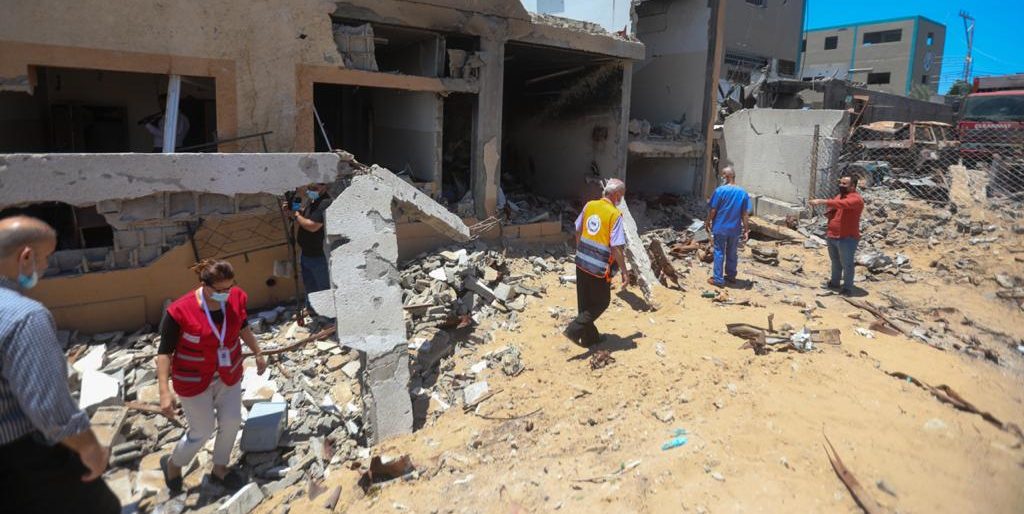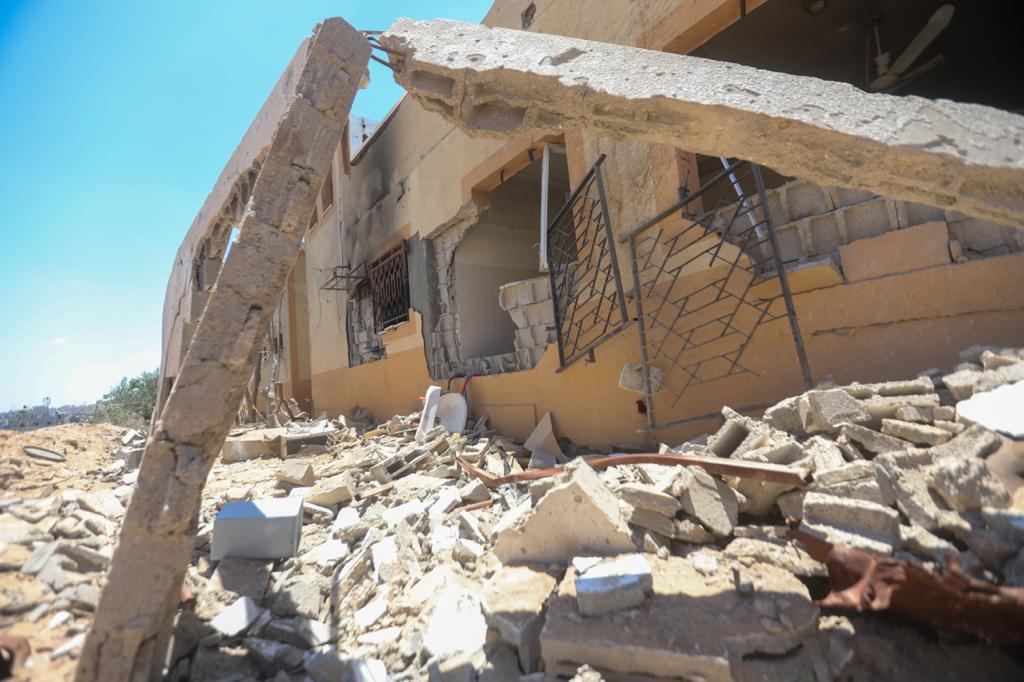Updates & Press
Blog Country Featured | May 24, 2021
Gaza: Update from the Ground
Author | MedGlobalComms


May 24, 2021
After 11 days of violent hostilities, including airstrikes in Gaza that killed 248 Palestinians including 66 children, a ceasefire was reached on Thursday. However, thousands have been displaced from their homes, hospitals and health clinics have been destroyed, and more than 1,940 wounded people have little access to health care.
In an op-ed for The Guardian, our health team in Gaza described the devastation facing civilians and how the health sector is left to pick up the pieces: “Health workers tried to save as many lives as they could, though we did not have enough medicine, resources, or manpower to keep up with the rising number of injuries each day.”
Health care is more important than ever. Our health team in Gaza is working around the clock to assess the damage and greatest health needs. Help us reach those most in need in Gaza by supporting life-saving medical supplies, medications, and hygiene kits.
Health Sector in Crisis


Even before the bombardment began, over 1.6 million people were already in need of humanitarian assistance in Gaza. A longstanding blockade caused chronic shortages of medications. The recent second wave of COVID-19 added an additional burden.
During the bombardment, at least 9 hospitals and 19 primary healthcare centers were damaged in the airstrikes, 22 ambulances were damaged, and 83 health personnel injured. Two of Gaza’s most prominent doctors were killed in the airstrikes: Dr. Mooein Ahmad al-Aloul, one of the only psychiatrists & neurologists in Gaza, and Dr. Ayman Abu al-Ouf, head of the internal medicine department at Al-Shifa Hospital. We extend our deepest condolences to their families, medical colleagues, and the entire community. The loss of these two health leaders and medical specialists is immense.
Our Emergency Health Response

Over the weekend, our Gaza Program Director Raja participated in a field visit to the damaged health facilities to assess the impact of the bombardment. She visited several hospitals and health clinics, including the Al-Remal Healthcare Center, the largest primary health clinic in Gaza which houses the lab responsible for COVID-19 testing.
To support those most affected by the bombardment, MedGlobal is working to urgently provide medication, medical supplies, and hygiene kits. We are also coordinating with local medical providers to set up mobile health programs, so families can access health services in their homes. This is particularly important as so many health facilities are out of service, and road damage is obstructing access to the few hospitals that are open. We are assessing how to best support the rehabilitation of health facilities damaged in the airstrikes, so that access to health care is most widely available.
MedGlobal’s previous health work in Gaza includes support for the COVID-19 response through 722,000 PPE items to protect vulnerable health workers, critical medical supplies and medications, and a PCR machine to allow for rapid COVID-19 testing capacity. MedGlobal has also supported emergency pediatrics care, launched trainings for local nurses, and led health education campaigns to reach members of the community.
Donate to our emergency health response to support the people of Gaza.
For any media requests, please contact Kat Fallon, Director of Policy & Communications, at [email protected].


